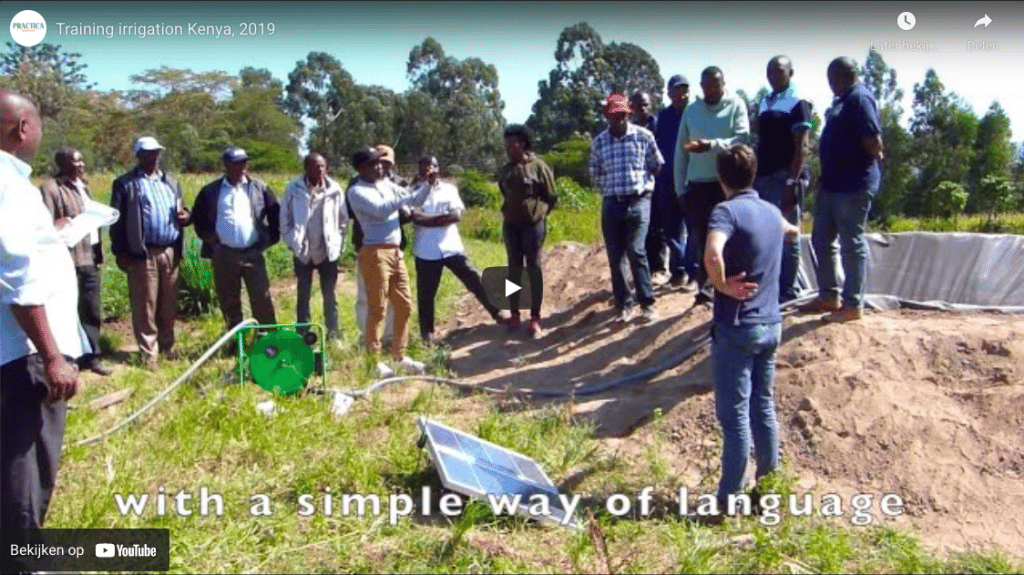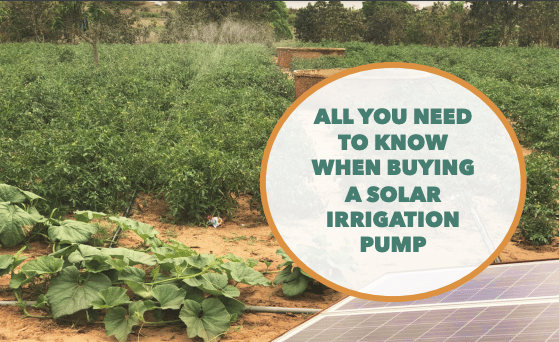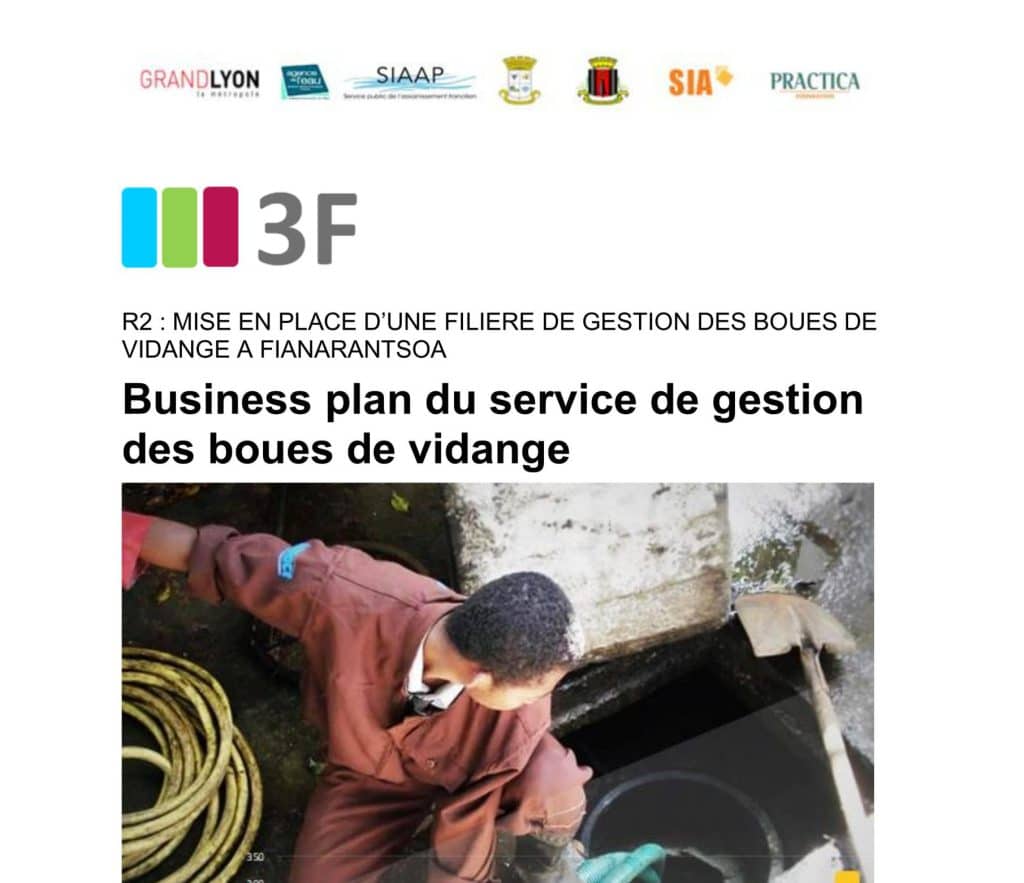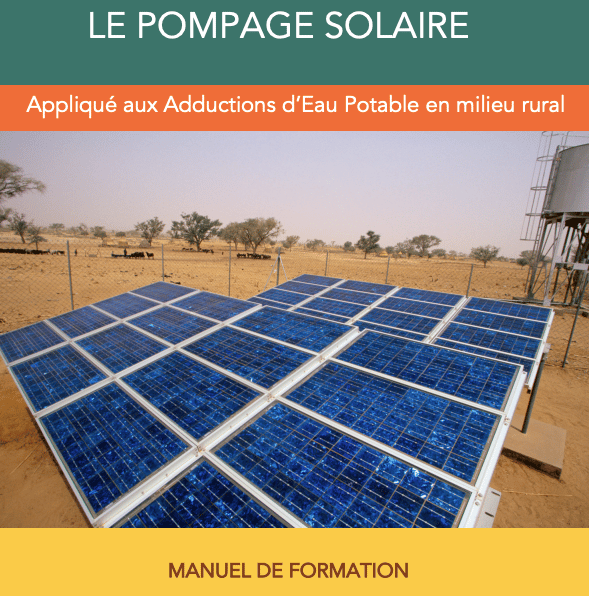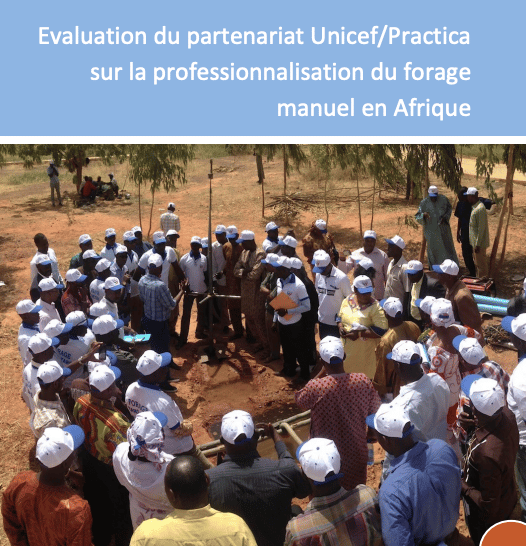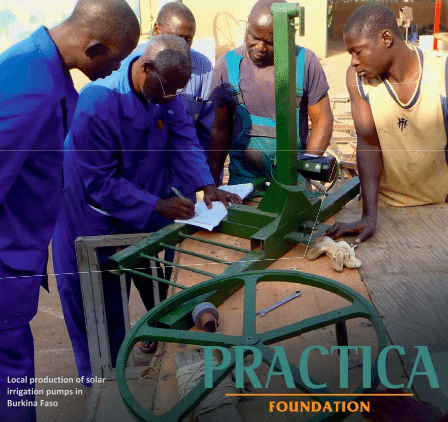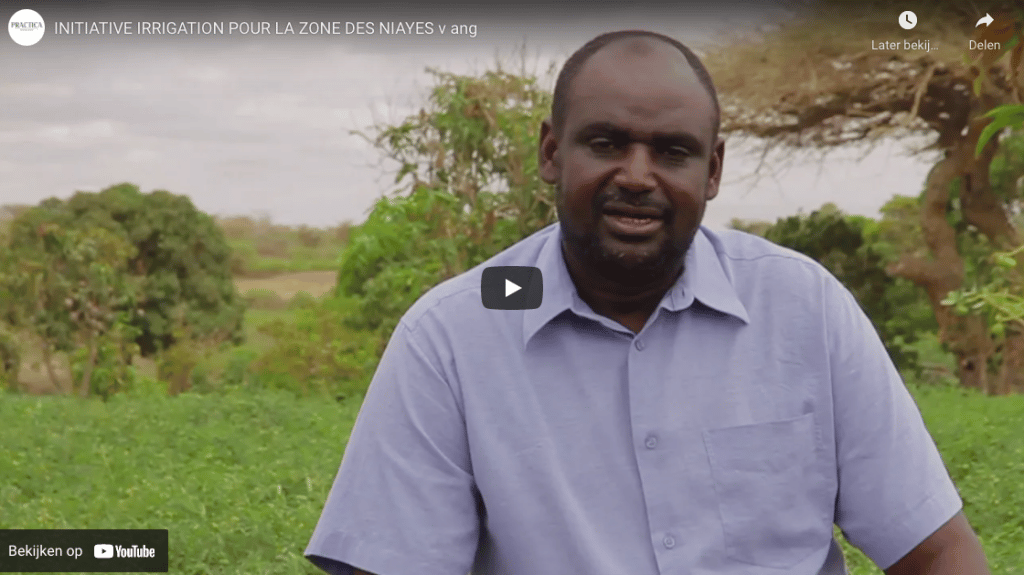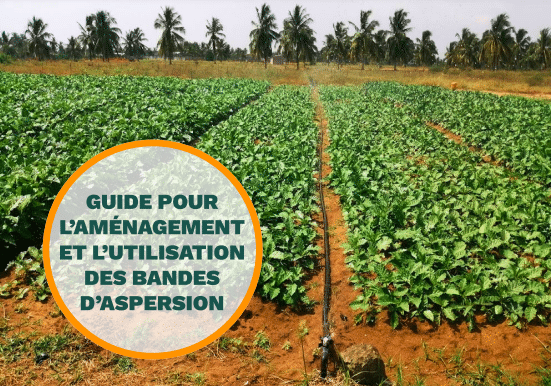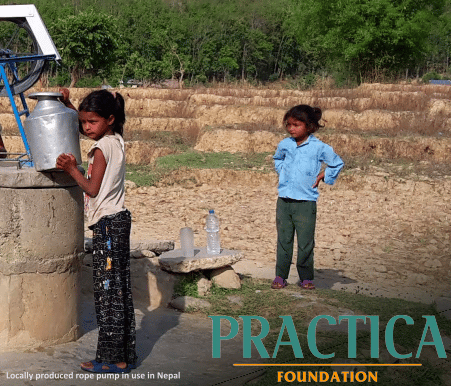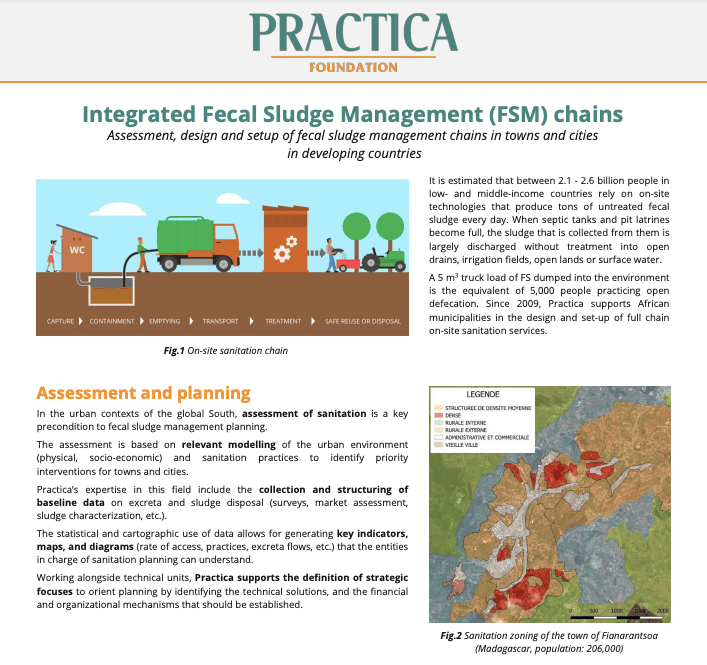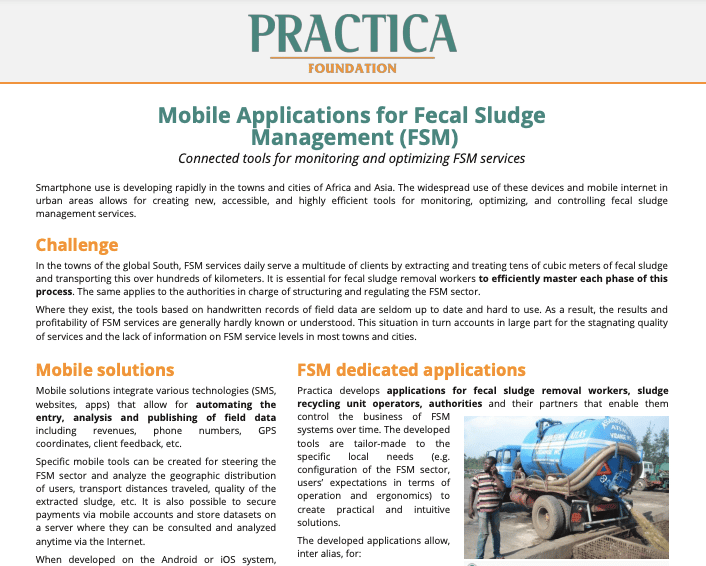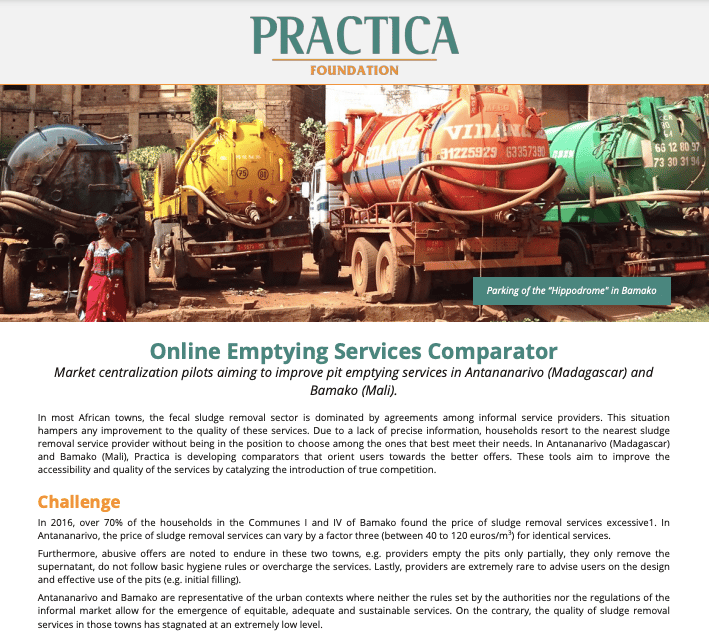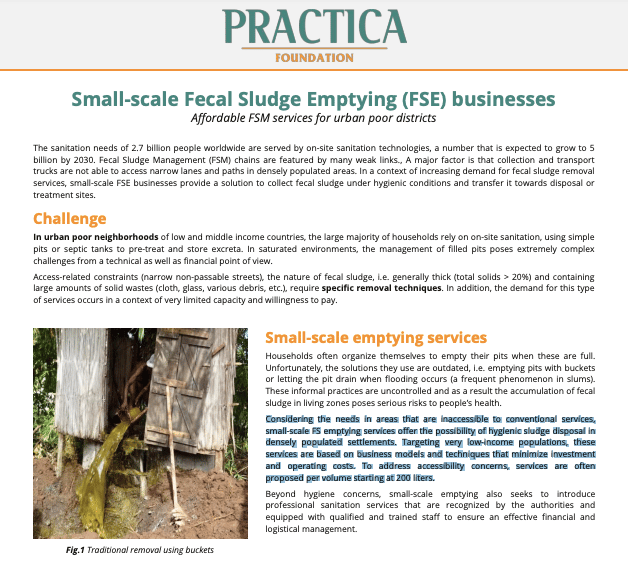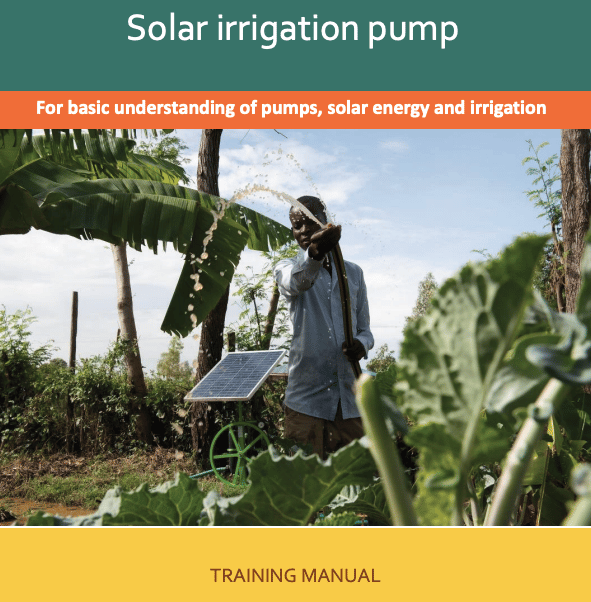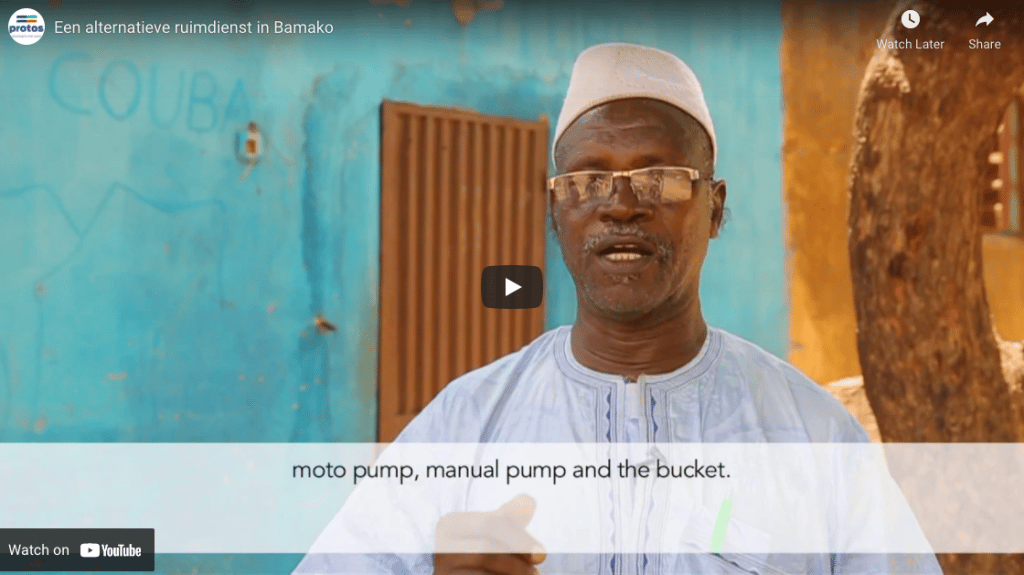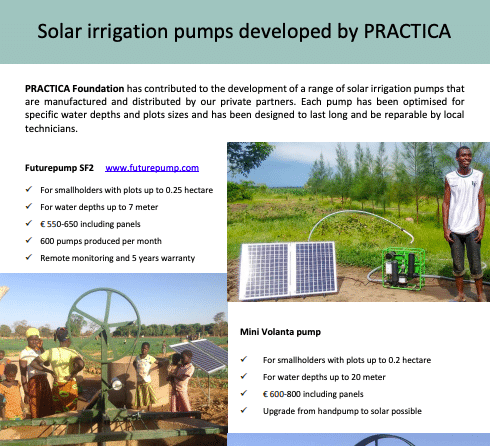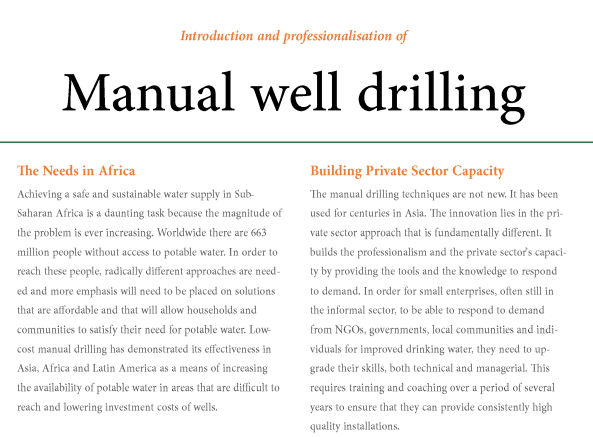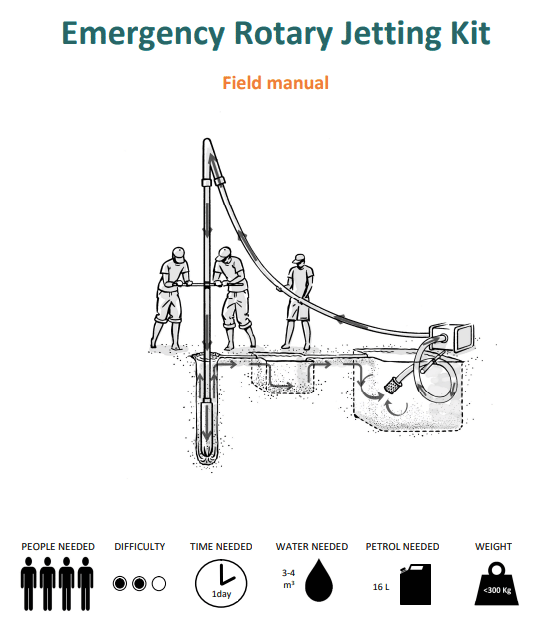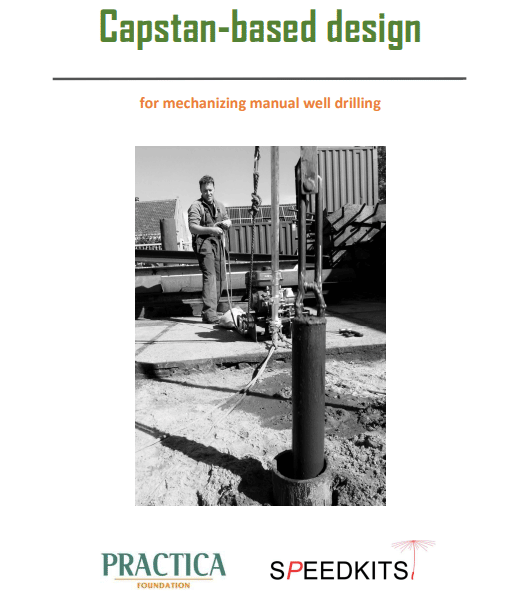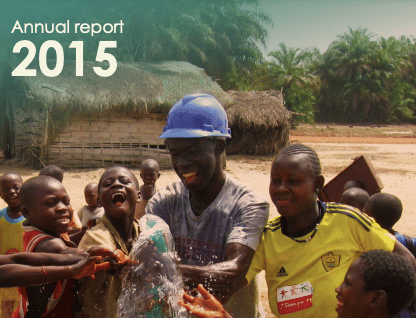Our publications
Resources produced during our past projects are accessible here.
For more than 10 years, we have capitalised documents on groundwater development, irrigation, drinking water supply and sanitation. You can find lessons learnt from the field, project reports, technical sheets, (training) manuals, videos, etc.
Check out and share the information you are interested in with the rest of the sector in order to support local enterprises and strengthen their technical and business skills.
Video – Training on irrigation for SWA project in Kenya 2019
In 2019, in the frame of the SWA project in Kenya, we organised a training for lead farmers on irrigation solutions. The goal was to show them the various irrigation technologies (pumps, application systems) available on the Kenyan market so that in turn they would be able to educate other farmers in their region. As participants explain in the video, the training was participative and practical. Several innovative training tools and materials, including a serious game (Mind your Head), were developed for this training in order to keep the learning process dynamic and improve the knowledge intake from participants.
Guide on solar irrigation solutions
Multiple solar irrigation solutions are available on the market. It is difficult to understand which ones are suitable for you. This guide helps you step-by-step to choose the technologies that will work well for your field. Technical, social, and economical aspects are considered.
This document was developed in 2019 for the SWA project in Kenya, and later translated to French.
Business plan for the set up of faecal sludge management services
This study is part of the 3F program. One of the expected result is the implementation and establishment of a sustainable faecal sludge emptying, treatment and recovery service covering the needs of more than 40,000 inhabitants.
From an operational point of view, this study constitutes a basis for the selection of the delegated manager of the sector, as well as the contractualization with the latter.
Training manual – Solar pumping for rural water supply
Without being exhaustive, managers will find in this manual an update on the design and sizing, operation and maintenance, analysis and financial management of drinking water supply systems equipped with solar pumping.
This document is a training manual for technical staff in the public and private sector. It is an additional educational support for a practical and professional training session.
Evaluation partnership Unicef/Practica professionalisation of manual drilling in Africa
During 5 years, we professionalised the manual drilling sector of 6 West African Countries. We built the capacity of 60 small local enterprises for manual drilling, and ensured access of 380 000 people to safe drinking water. Manual drilling is a low-cost solution to water access that can provide the same water quality standards as mechanically drilled boreholes. In areas with high feasibility, it therefore allows an improved access to the resource. Thanks to the partnership that we had with UNICEF, the companies trained are now able to provide a sustainable service to access drinking water.
Annual report 2017
Learn about our activities and financial figures for 2017 and get a preview of our ambitions for 2018. Across our four main themes (groundwater development, farmer-led irrigation, rural water supply, and faecal sludge management) we came up with new ideas of technologies that could be scaled up in the field tomorrow, such as the mini-pivot, and the modular piped system. We also worked on an innovative solar light device for refugees shelter and piloted it in Senegal. We also pursued our efforts to build the capacity of the local businesses. The example of Impact in Madagascar is described in this report.
Video – Intermediate-depth solar pumping irrigation solutions for smallholders in the Niayes region
When the water is at a limit depth for surface pumping with a motor pump (8 to 10 m) the producer must take a technological step leading to the choice of an appropriate solar pumping solution. During a production period PRACTICA piloted the feasibility of pragmatic and low-cost solar irrigation solutions for an intermediate depth of water (8 to 20 m) capable of meeting expectations and removing the constraints encountered by small producers of the Niayes area.
The full report of the project is available here in English, and here in French.
This video is available in French, with English subtitles.
Spray tube guide for use and installation
Guide for the installation and use of spray strips developed as part of the Drops4Crops project in Burkina Faso. The guide, intended for distribution in hard copy, is designed to guide local farmers and extension agents in the purchase, development and operation of this technology.
Annual report 2016
Rapport annuel de nos activités conduites en 2016. As previous years, we worked in our four themes: groundwater development, irrigation, drinking water supply and sanitation. Through the projects with our partners we continued to give people access to safe drinking water, decent sanitation services and renewable energy sources for irrigation. we support small local companies to build a viable business around these services.
Integrated Faecal Sludge Management (FSM) chains
Since 2009, Practica supports African municipalities in the design and set-up of full chain on-site sanitation services. This information sheet describes how to assess, design and set up of faecal sludge management chains in towns and cities
in developing countries.
Mobile Applications for Fecal Sludge Management (FSM)
Smartphone use is developing rapidly in the towns and cities of Africa and Asia. The widespread use of these devices and mobile internet in urban areas allows for creating new, accessible, and highly efficient tools for monitoring, optimizing, and controlling faecal sludge management services.
Online Emptying Services Comparator
The emptying sector is often organised informally. Therefore, households resort to the nearest sludge
removal service provider without being in the position to choose among the ones that best meet their needs. In Antananarivo (Madagascar) and Bamako (Mali), Practica is developing comparators that orient users towards the better offers. These tools aim to improve the accessibility and quality of the services by catalyzing the introduction of true competition.
Infosheet – Faecal Sludge Emptying (FSE) business
In a context of increasing demand for faecal sludge removal services, small-scale FSE businesses provide a solution to collect faecal sludge under hygienic conditions and transfer it towards disposal or treatment sites. This infosheet describes the added value and needs of small-scale FSE services.
Considering the needs in areas that are inaccessible to conventional services, small-scale FS emptying services offer the possibility of hygienic sludge disposal in densely populated settlements. Targeting very low-income populations, these
services are based on business models and techniques that minimize investment and operating costs. To address accessibility concerns, services are often proposed per volume starting at 200 liters.
Training manual – Solar irrigation pump
Manual for basic understanding of pumps, solar energy and irrigation.
The manual is part of a training, the full content is only available through the PRACTICA training. For requests: www.practica.org/contact
If you are looking for more information about the solar suction pumps mentioned in this manual, and purchase options, please indicate your interest at https://futurepump.com/
Video – An alternative emptying service in Bamako
Empty a latrine in a big city like Bamako, where many neighborhoods are not accessible for a normal truck? Not easy. Protos and Practica have set up an affordable emptying service.
The objectif is to improve access to pit emptying services by populations living in low-income neighbourhoods. We provided training on both manual and mechanical techniques to local enterprises so that they would be able to adapt to the area and would be able to access even isolated places places usually not covered by this type of service.
Solar pumps developed by PRACTICA
Une fiche informative sur 3 pompes solaires développées par PRACTICA. La pompe SF2 est maintenant commercialisée par Futurepump, tandis que les pompes Volanta sont construites et vendues au Burkina Faso par le Centre Sainte Famille de Saaba.
Introduction & Professionalisation of Manual Drilling
Manual drilling covers a range of techniques to drill high quality drinking water wells at a relatively low cost. To assure a sustainable introduction and quality of works; PRACTICA works through long-term capacity building and advocacy programmes. Manual well drilling techniques are not new. They have been used for centuries in Asia. The innovation lies in the private sector approach. We are professionalising the sector by transferring knowledge and providing the skills and tools small-scale entreprises need to respond to local demand.
Emergency rotary jetting kit – Field manual
The Emergency Rotary Jetting Kit is a technology to drill wells for drinking water in emergency situations. This is a field manual that details the material required and how to make use of the kit in practice. The kit is simple, compact and robust and could be operated and maintained by local drilling teams. While ready-to-use for emergency contexts or feasibility studies the kit can be handed over to the local private sector, thereby increasing local capacity and resilience. The complete kit and corresponding training programmes can be delivered by PRACTICA. Learn more about the kit by clicking here.
Capstan-based design to mechanise manual drilling
This paper describes a technical innovation that utilizes a simple and affordable mechanical device to improve the use of manual drilling in consolidated and highly weathered rock formations. Such mechanical device increases the effective drilling time and reduces the labour requirements. The proposed method uses a rotating capstan that provides a lift and relative effective free-fall mechanism. This capstan kit is designed as an open source innovation for local fabrication and maintenance in asset-poor areas.
Annual report Practica 2015
We proudly present the 2015 annual overview in which we display a few highlights of our work. In 2015, we worked towards completion of two of our substantial programs; The Dutch WASH alliance and the S(P)EEDKITS program, in which
we have booked successes in getting innovative technologies into the sector. In our other projects, we continued our established relationship with partners and jointly created impact on the ground. As an organization, we have strengthened our positioning by organizing a training on ‘Business cases in Water and Sanitation projects’, attracting an international audience. To be able to continue our innovative work, in 2015 we have invested our restricted reserves in the development of a range of new technologies and concepts. Altogether a great achievement of our international team of experts and as a result we look back at a successful year.

